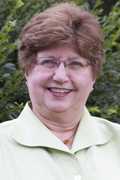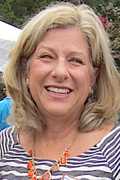VOL. 40 | NO. 7 | Friday, February 12, 2016
Meeting the demands of a rapidly aging population
By Linda Bryant
When Gov. Bill Haslam gave his annual State of the State address on February 1, he proposed a $34.8 billion plan providing new spending on colleges and universities, road projects and a large deposit into Tennessee’s emergency budget reserves.
Senior citizens weren’t mentioned.
In a political atmosphere where the demand for investment dollars is high and taxes are expected to stay low, it’s not unusual for aging citizens to be passed over. But those who work closely with seniors in Tennessee believe the day will soon come when the needs of seniors will be front and center. That’s because a massive amount of Americans are joining the ranks of those 65 and older.
“10,000 people turn 65 every day,” says Adrienne Newman, associate executive director and living at home services director at Nashville’s Fifty Forward.
“That began in 2010 and will continue until 2030. Davidson County’s population of persons age 65 and over is expected to increase from an estimated 75,199 in 2015 to 150,484 by the year 2050. Even though we know this big wave of seniors is coming, we aren’t really prepared for it as a nation or state.”
What will this army of aging seniors and their adult children caregivers demand?
-- The ability to stay at home as long as possible and be in control of circumstances

Talmadge Sherron, 70, touches a spot behind his ear as he talks about having melanoma, which spread to his lymph nodes. He is one of many who benefit from FiftyForward’s at-home health care services.
-- Michelle Morrow | The Ledger-- Qualified caregivers who receive better pay and benefits
-- Qualified substitute caregivers for adult children or other fulltime helpers
-- Safe and reliable transportation
-- Services that fit the individual’s needs, including services from businesses such as grocery stores to shop for the customer
-- Homes refitted for safety
-- More easy-to-understand information about health care and health care benefits (Medicaid and private insurance)
-- Housing alternatives like cohousing or granny pods (a backyard cottage for an elderly parent)
-- Sound financial advice along with easy-to-understand information about retirement funds
“As a nation, we’re going to have to come to terms with aging Americans,” says Tim Howell, CEO at Senior Citizens Home Assistance Service in Knoxville.
“We’re going to have to do it pretty fast or we’re going to have an overwhelming amount of people needing services and help, and they aren’t going to be able to get it. What we worry about is that there’s going to be millions of people unable to pay for the care and services they need.”
Howell says aging baby boomers, a generation of an estimated 78 million that make up 26 percent of the nation’s population, are going to rise up to shine a light on senior issues.
“As they start to require services and realize how many unmet needs there are, I think the baby boomers will start to question the whole system and ask, “Why aren’t we changing this?” Baby boomers aren’t afraid to speak out and question the powers that be.”
Susan Long, director of Knox County’s CAC Office on Aging, a public non-profit agency and clearinghouse that plans services and develops resources for seniors, thinks Howell might be on to something.
“We have programs designed to help seniors that make a big difference to a lot of people, but so much of the problem that’s coming is going to be about dealing with the sheer numbers of people needing services,” Long explains. “It’s already difficult to find and keep qualified caregivers, and it’s only going to get more challenging.”
Long says we may have even a resurgence of a Gray Panthers-type of movement, an organization that was formed in the 1970 by Maggie Kuhn, who became an advocate for older Americans after being forced to retire at age 65.
Widely published projections show that by 2050, for the first time in history there will be more elderly people than young people in the world. The number of people under 65 who would be available to provide care for the older people is dropping from a current 12:1 ratio to 4:1.
The Ledger reached out to people on the front lines of issues of aging – adult children acting as caregivers, social service agencies that help seniors, professionals who provide various services from home care to counseling to medical supplies.
We asked them to highlight some of their most critical needs and to talk about the future of caring for our elders.
Maribeth Farringer
Executive Director, Council on Aging of Greater Nashville
What are some things ripe for change that would help us as a society moving forward as we try to meet the needs of our seniors?

Farringer
“Most seniors cannot afford long-term care insurance and they can’t afford assisted living.
“Most want to stay at home as long as possible, but some are stuck at home. Right now, there are only two assisted living homes in Nashville that provide services on a sliding scale. There’s only 10 beds sliding scale beds available at one of them. This kind of situation isn’t specific to Nashville, it’s a widespread problem that we need to look at.
“The other big issue that we see is the lack of transportation for seniors.
“When seniors can no longer drive, many of them have to move because they can’t get around. Their quality of life goes down. We conducted a survey about 10 years ago and asked 500 seniors if they would ask friends or family to drive them to a list of various places – the grocery store, doctor office, church, to get their hair done, to go shopping, etc. About 70 percent said they’d ask friends or family to take them to (their) doctor or grocery store, but it dropped to 30 percent to take them anywhere else. What quality of life do you have if the only places you go are the grocery store and the doctor?
“If you have money, there are personal support agencies that can provide transportation as one of their services, but most of those places require a minimum of four hours. Let’s say that service costs $18 an hour. Do you really want to pay that much to go pick up your prescriptions or go to the grocery? Seniors are very conservative with their money. They’re afraid they are going to outlive their money. They might not be willing to go anywhere for that price. It’s a real issue.’’
Brenda Williams, RN
CEO and owner. ReNewed Living at Home, Nashville
Why did you start a non-medical home health care company? What are some of the most important issues your clients face?

Williams
“I started ReNewed Living at Home two and a-half years ago. We hire caregivers who exceed industry standards and pass extensive background checks and drug testing.
“I’m 60 and I don’t want to retire. I plan to still be working at 70.
“I’ve been in service-based professions as a registered nurse and Realtor. ReNewed living at Home is also service based, and I love it. It’s very meaningful to be able to provide seniors with an extended range of support. One of the reasons why I choose this business is because I knew the demand for it would be there in years to come. We’ll evolve with the generations and baby boomers will have an increasing need for our help.
“Interestingly, we aren’t seeing a huge influx of baby boomer clients at this point. But a large number of baby boomers are calling us about getting help taking care of their parents. They are still working, trying to maintain their own jobs and deal with their children and grandchildren.
“About 20 percent of our business comes directly from seniors. The rest, about 80 percent, comes directly from a family member or advocate of some kind.
“We are like a surrogate family member for our clients. We will do anything non-medical to help maintain a person at home – cooking, cleaning, nutrition assistance, doctor’s appointments, etc. I have an excellent business, but I have made choices. I wanted to be privately owned, rather than buying one of the numerous franchises on the market. I don’t want 200 clients. I want 50 clients I know I can offer the best care to. I want to know every client and every caregiver I have.
“Adult children of our clients often come to us because scheduling a caregiver is usually very difficult. It’s a huge issue when you hire an independent caregiver or rely on a family member or neighbor for everyday tasks. All of a sudden that person gets sick or has something else come up, and they are unable to come into the home to help. Our clients need consistent help they can trust and rely on.”
Adrienne Newman
Associate executive director and living at home services director, Fifty Forward, Nashville
What emerging trends and issues do you see in senior services?

Newman
“In the few years there has been much more focus on home and community-based care utilizing Medicaid dollars. It used to be that all the Medicare funding went to nursing homes, but now there is much more of a level playing field. It’s about 50/50 now. There’s still a ways to go, and other states have been doing it for a much longer time.
“I think that everyone has identified that people really want to stay at home. They want to stay in a place that is familiar and where they’re most comfortable. Housing can be the most expensive thing. It makes a big difference if you can stay where you are, or if you own your home and don’t have to make a move to assisted living or a nursing home. Obviously, family caregiving has always been going on, but there’s a lot more of it now – out of necessity. Not everybody can afford or purchase services.
“One of the downsides of that is that many family caregivers who are children of older adults are bankrupting themselves or using their own retirement funds to take care of an elder.
“There are some interesting movements throughout the country such as cohousing, tiny houses, mother-in law-suites, granny pods, etc. You also see a lot of college age students living with older adults now in situations where they are helping them meet their needs and living there for free.
“Many caregivers can’t necessarily give so much of their time to their loved ones without some motivation to keep them doing it. There have also been a lot of movements nationwide regarding paying family caregivers, and it’s called self-directed care. It might be a modest wage, and there are some qualifying requirements, but you do get to choose who you want to have come in and help you.
“I think it’s very critical to look at the individual needs of our elders. It used to be where a sitter service or a homemaker service would have a minimum of four hours at $20 an hour. But some people don’t need four hours’ worth of work. Why would they pay $80 when they only need somebody for 15 or 20 minutes? Businesses that have a menu of services that are individualized are all the better.
“We are seeing some creative way of providing services. There are many non-traditional services such as transportation with Uber or Lyft that can transport elders cheaper than taking a taxi or services or can tell their son or daughter exactly what they want from the grocery store, and they can call it in, and Kroger will have it ready for them to pick up.
"Also anything that helps people stay safer at home like home modifications such as retrofitting your home so that everything is on one level or anything that can help prevent falls. We have come a long way on that, and those are the kinds of trends that I’m seeing.’’
Susan Long
Director, Knoxville-Knox County Community Action Committee Office on Aging
How do you know when you need to downsize to a more manageable home or senior apartment or go into assisted living?

Long
“You have to think about what puts the senior in danger. For example, you’re in a split foyer home and are not able to get up and down the steps. Or maybe you can’t afford to get a lift installed. There are many possible indicators.
“If you are totally isolated and don’t have good family support, or if you realize it’s been days weeks or months since you’ve seen people. If you are very depressed. Your home should be wonderful, not a prison. Assisted living facilities can be very wonderful places if you can afford them.
“The problem is that you run into a lot of people in the office of aging that cannot possibly afford assisted living. And people have a horrible fear of nursing facilities.’’
Tim Howell
CEO, Senior Citizens Home Assistance Service, Knoxville
What are the most pressing needs of our aging population? What keeps you up at night?

Howell
“One of the biggest challenges is finding and keeping the right level of staffing. It’s a huge issue. We aren’t quite there in Tennessee. Right now, I could hire another 10 caregivers. I place ads in newspapers and on our website, but I just can’t find enough people.
“We do have caregivers who’ve been with us for 15-20 years, but the industry average for a caregiver is three years. We work hard to take good care of our caregivers. Our wage at SCHAS is more than most companies, and we offer vacation and a 401K. At the end of the day, it’s a very stressful job and the wages aren’t high compared to other jobs. There’s a lot that can be improved when you look at our caregivers and their reputation in our society.
Susan Hart
CEO, Hart Public Relations & Communications, Nashville
You recently acted as caregiver and care coordinator for your elderly parents. Can you describe some details of that experience and talk about what you learned from it?

Hart
“I grew up in Alabama, but I’ve lived in Tennessee for 35 years. My dad was diagnosed with pancreatic cancer in 2012. My mom wasn’t in a position to help. She was in ill health herself, and Dad had always pampered her. He took care of things, and it was understood that I would be taking his place.
"I drove back and forth to Alabama a lot, seven hours each way. My self-employment suffered. Of course, I wanted to take care of my parents in any way I could.
“Mom stayed in Alabama for 45 days after dad died, during which time she was rushed to the ER three times. I realized I needed to move her to Tennessee. We moved her into assisted living in Franklin, which meant frequently driving the 30-minute drive from our home in Bellevue.
"My mom’s level of care went up, and we moved her from assisted living to long-term care. We sold our home in Bellevue and moved to Franklin. My mom passed away in September 2015.
“Of course, dealing with all the details of caregiving was very stressful. I felt like there was no “one-stop shop” I could go to for help. There was a lack of consistency. I got different answers from different people. There was no clear path. There was no manual that said: ‘Here’s Step 1, here’s what you do.’
“If I had to do it all over again, I would have better prepared myself for the responsibilities involved.
“I would have educated myself a lot more.”